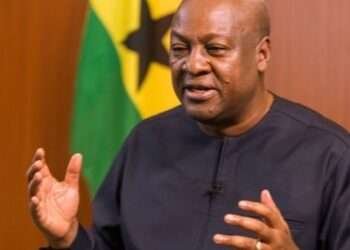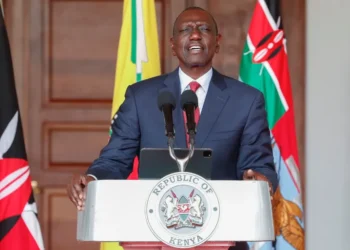The Central Bank of Ghana’s efforts to reduce inflation faces a stalement as the apex body is projected to tighten monetary policy rates while the government, through fiscal policy, is expected to raise taxes.
According to Professor Lord Mensah, the expected stalement will be due to reforms in the new $3 billion IMF program that favors both monetary policy tightening and tax increases.
“Bringing down inflation is going to be a stalemate as the MPC will tighten policy rate whiles the Government will also increase taxes.”
Professor Lord Mensah
According to the Ghana Statistical Service (GSS), inflation at end-April 2023 stood at 45% . Inflation in the country has been difficult to reduce given the fiscal dominance of government over its large expenditure which reinforces inflation.
Speaking further during the discussion themed “Unpacking the IMF Approval and its Effects on the Economy”, Prof Mensah remarked that the current IMF programme is weighted towards revenue mobilisation rather than expenditure rationalization.
According to him, the IMF program should be expenditure weighted rather than revenue weighted, as this will entail tough times for Ghanaians when the government raises taxes to reach the program’s revenue mobilization targets.
“An IMF programme that is revenue weighted is usually done, when the structure of the country is such that the citizens are rich but the country is broke and so money is squeezed from the citizens to the state or country through taxes. And doing so hurts the citizens because of the increase in taxes.
“When IMF designs a programme that is revenue weighted and not expenditure weighted, the Fund gives a field day to the politician, as they will mobilize the revenue but then use it on expenditure, particularly in an election year as the country heads towards the polls in 2024. This coming election will show if indeed Ghana is in an IMF programme or not.”
Professor Lord Mensah
Financial Analyst Projects Ghana’s Return To The IMF In 2027
More so, Dr. Alex Ampaabeng, also commenting on the “Unpacking the IMF Approval and its Effects on the Economy”, predicted Ghana’s return to the IMF in 2027, the year after it exits the new IMF program in 2026.

His prediction, is based on what he says is a ‘lack of expenditure controls’ on government in the IMF programme, also affirming the high revenue-weighted nature of the programme.
“We could probably be back to the IMF by 2027 given the lack of controls on expenditure in IMF programme.”
Dr. Alex Ampaabeng
According to the financial analyst, the economic difficulties outlined by the IMF that forms the basis of the new program are not new to the country, and that remedies to these challenges have been continuously offered to government but that it has refused to listen.
Speaking further, Dr. Ampaabeng lamented the inefficiency of the government’s flagship programs aimed at reforming the economy’s fundamentals and, eventually, ensuring macroeconomic stability.
“All of the flagship programs that were supposed to aid economic growth have failed us; I am yet to see a flagship program that has been largely successful; for example, planting for food and jobs has not been able to address the issue of food importation.”
Dr. Alex Ampaabeng
Ghanaians, he says, should brace themselves for difficult times ahead with the implementation of the IMF program, given the predicted tax increases.
Read also: Cedi Suffers Over 21% Depreciation Against The US Dollar May 2023- BoG



















